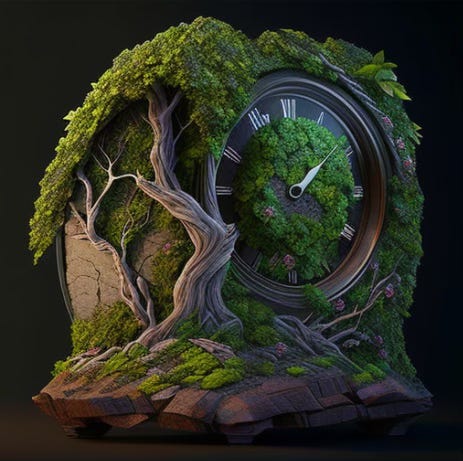Life Extension
There has been a lot of talk recently about life extension research. I’m all for stretching the number of my good years, but there is some irony here. The same people who push the research are the ones who seem the most hell-bent on ignoring the two best life extension technologies that we have.
The first is new experiences. When I travel or otherwise disrupt my life, I often test myself: “how long does it feel like since the change?" (Leaving home, for example.) During a period dense with new experiences, the multiplier (subjective time divided by “real” time) usually falls between 3 and 4. That is a phenomenal life extension technology. And new experiences does not only mean travel: they can be new people, new hobbies, new neighborhoods, etc. And yet the loudest life extension proponents include the same people who eat a steady diet of Soylent and Huel in the name of increased productivity.
The second technology is being present, which has a potentially unlimited subjective time multiplier. You can test this: how long does an hour of watching a rock feel? And you probably spend a lot of that hour being distracted. If you can cultivate your powers of attention so that you are truly present for large fractions of the day, that would have an enormous life extension payoff. Again, this seems to be at odds with the prevailing culture in Silicon Valley.
Of course, both of these technologies only work on the subjective experience of time, but it would be a mistake to value anything else. Would you rather live 1000 years but sleep for 999 of them or 50 years where you’re awake and present for most of it?
I have made use of these technologies, sometimes on purpose, sometimes by accident, and you will never hear me say is that the years have “flown by”. I feel like I’ve gotten my money’s worth.
P.S. If it’s immortality you’re after, be careful: Pascal’s Secular Wager


